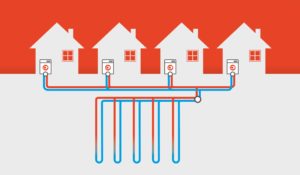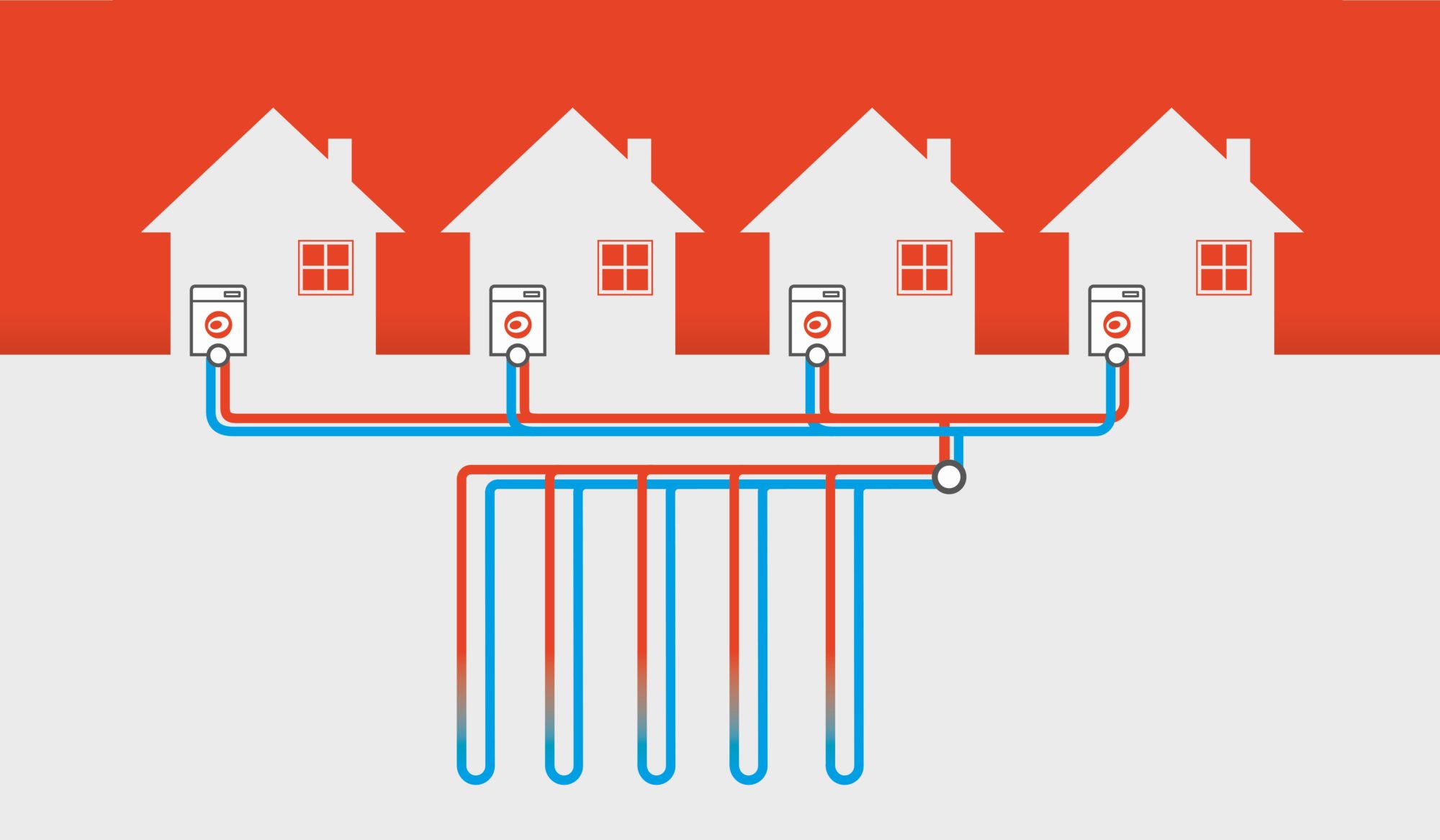Kensa welcomes the fact that the CCC is challenging Government to improve its policies and legislation to get the UK on track to reach its climate change goals.
The ground source heat pump experts are encouraging policymakers to engage with their ‘bigger picture’ Networked Heat Pump solution, which they say provides a tangible pathway for a wider transition to renewable energy.
Dr Matthew Trewhella, CEO, said:
“It is one thing to make low-carbon heating technologies like ground source heat pumps available, but it is entirely a different matter to achieve their installation in homes and their adoption for use on a mass scale.
“Kensa is working to break down the perceived barriers to the widescale electrification of heat and showcase to policymakers and the public that Networked Heat Pumps can achieve mass decarbonization goals at scale for the lowest economic and societal cost.”
The decarbonisation of heating should be a key priority – 21% of all emissions in the UK are attributed to the provision of heat. More than 80% of UK homes will still be in use in 2050 and existing buildings will have to undergo significant improvements to meet the net-zero challenge.


By installing the underground infrastructure required for ground source heat pumps a whole street at a time in advance of connecting individual properties, entire communities would be able to switch to renewable heating when they are ready to transition. This would happen in a way that mimics the original roll-out of the gas grid.
Kensa has developed funded arrays that enable house builders and developers to install ground source heat pumps for the price of air source heat pumps. This approach provides a viable pathway for a subsidy-free replacement of the gas grid network.
If the infrastructure is provided at zero upfront cost to the consumer, then homeowners could be motivated to replace gas boilers with heat pumps in a phased switchover, subsidised by Government support. Add to this the scalability of the model from the street-by-street level right up to the town & city level, and Kensa say this could truly be a gamechanger.
Kensa is currently delivering a ground-breaking demonstrator project based on this Networked Heat Pump model in Cornwall – Heat the Streets, Stithians.


With the right legislative changes, this would be a self-sustaining, subsidy-free method for widespread decarbonisation. Whilst these policies are put into place, strategic Government subsidy investment could bridge this gap to kickstart a low carbon transition.
Those cost-neutral legislative changes could include; a rebalancing of the current disproportionate levies on electricity; linking stamp duty and council tax to carbon emissions; allowing the access fee to be collected via the electricity bill, and giving utility rights to deploy infrastructure with reduced red tape.
Better still, this highly-efficient Networked Heat Pump solution could save even more money when people need it the most as we transition towards low carbon heating.







